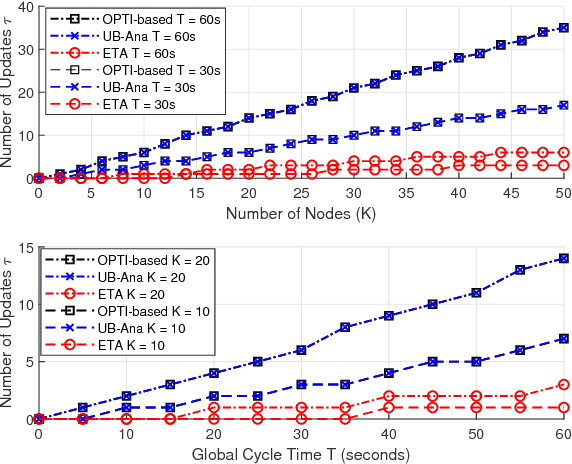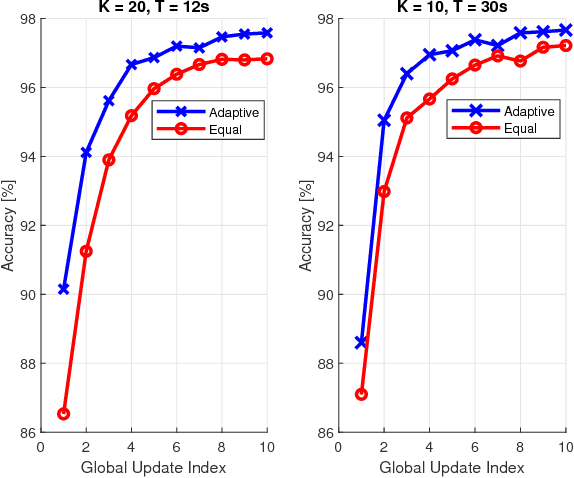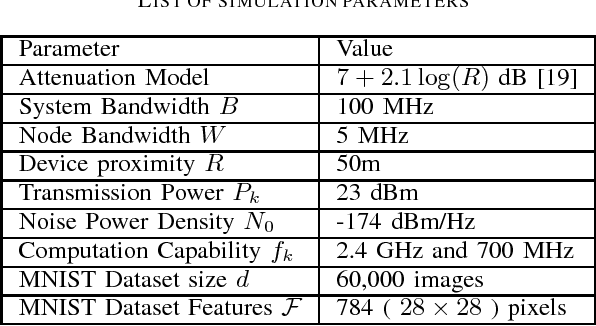Adaptive Task Allocation for Mobile Edge Learning
Paper and Code
Nov 09, 2018


This paper aims to establish a new optimization paradigm for implementing realistic distributed learning algorithms, with performance guarantees, on wireless edge nodes with heterogeneous computing and communication capacities. We will refer to this new paradigm as "Mobile Edge Learning (MEL)". The problem of dynamic task allocation for MEL is considered in this paper with the aim to maximize the learning accuracy, while guaranteeing that the total times of data distribution/aggregation over heterogeneous channels, and local computing iterations at the heterogeneous nodes, are bounded by a preset duration. The problem is first formulated as a quadratically-constrained integer linear problem. Being an NP-hard problem, the paper relaxes it into a non-convex problem over real variables. We thus proposed two solutions based on deriving analytical upper bounds of the optimal solution of this relaxed problem using Lagrangian analysis and KKT conditions, and the use of suggest-and-improve starting from equal batch allocation, respectively. The merits of these proposed solutions are exhibited by comparing their performances to both numerical approaches and the equal task allocation approach.
 Add to Chrome
Add to Chrome Add to Firefox
Add to Firefox Add to Edge
Add to Edge